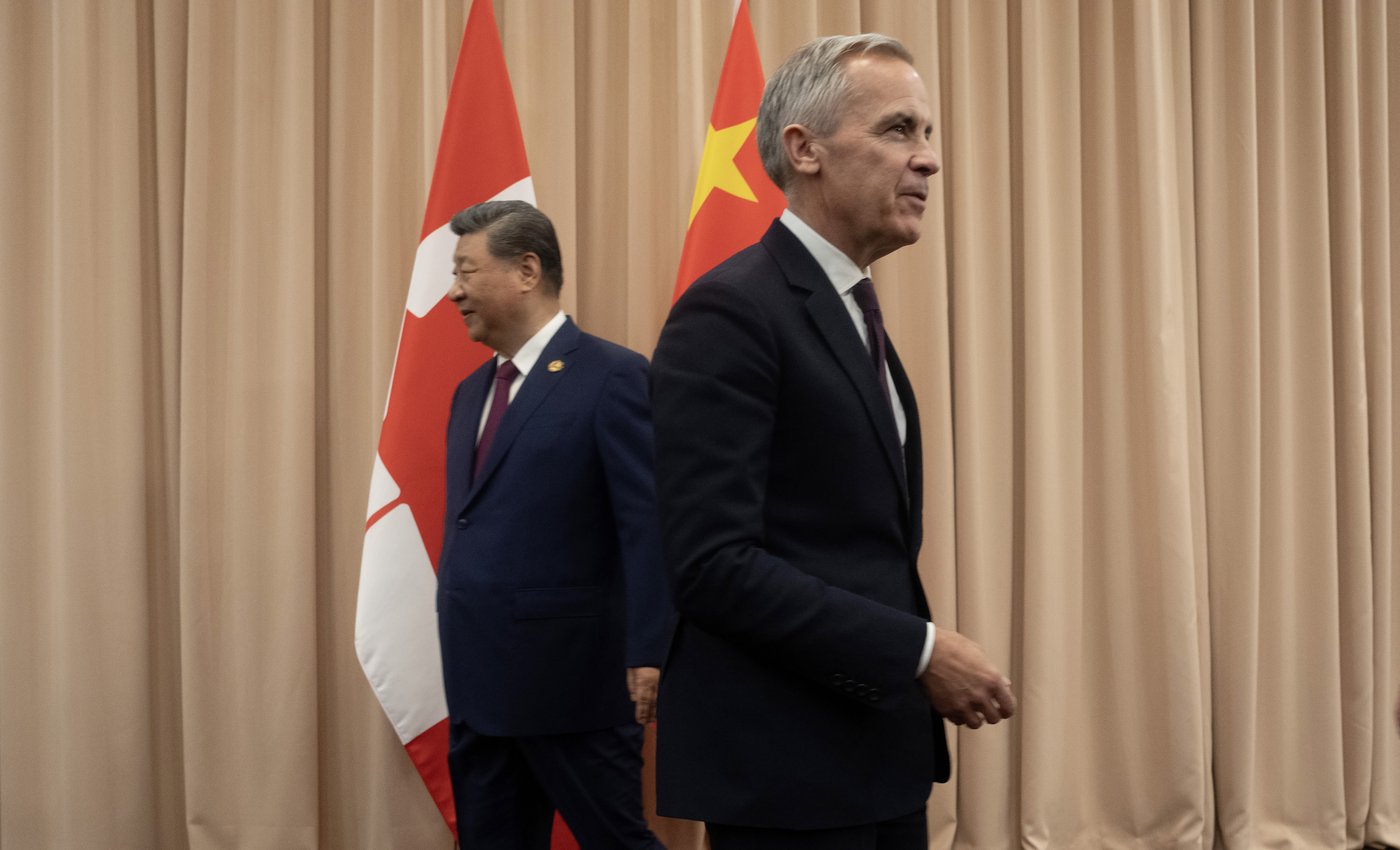OTTAWA — Some analysts say Prime Minister Mark Carney’s meeting with Chinese President Xi Jinping might set the right tone in moving the bilateral relationship forward, though they also urge caution.
Both leaders touted positive outcomes following the 40-minute meeting on the sidelines of the APEC summit in South Korea on Friday.
Margaret McCuaig-Johnston, a board director with the China Strategic Risks Institute, said Carney had a successful meeting that set the tone for high-level engagement without conceding things to Beijing.
She countered that with the meeting Xi had with U.S. President Donald Trump, in which she argued Washington made multiple concessions such as dropping restrictions on certain Chinese companies.
“Trump came away poorer, because he gave more than he needed to or should have,” said McCuaig-Johnston.
“I don’t see that Trump meeting as a success. I see the Carney meeting as a success because it was higher level. It just started the discussion going, and it left the door open to a range of options on our problematic files.”
Friday’s meeting did not end Chinese tariffs on canola, seafood and pork that Beijing imposed in retaliation for the 100 per cent tariffs Ottawa imposed on Chinese electric vehicles, batteries and other goods last year.
China’s ambassador in Ottawa has said Beijing would drop its levies if Ottawa cancels the EV tariffs.
McCuaig-Johnston said Canada should keep its restrictions on Chinese electric vehicles in order to protect the auto sector from dumping, and prevent security risks associated with data access. She similarly said green technology presents other risks for co-operation with China.
She said that in an attempt to get Beijing to drop its agricultural tariffs, Canada could consider conventional energy as a way to partner with China, “giving them an alternative win, rather than decimating our auto sector.” She noted the government’s major projects include movement on petroleum and liquefied natural gas.
McCuaig-Johnston also said Canadian sectors hit by Chinese tariffs need to learn from a pattern of Beijing taking such steps, and end the reliance that is making them vulnerable.
“The canola farmers should be spending more time diversifying to other countries in the region, rather than lobbying the federal government to compromise another sector to save them,” said McCuaig-Johnston, who researches Chinese technology policy at the University of Ottawa’s international-affairs school.
Sen. Clément Gignac, who co-chairs the Canada-China Legislative Association, wrote that he was “delighted” that both countries are recalibrating the relationship.
“If we want to (diversify) our trade partners and double our non-U.S. exports over the next decade, we have no other choice (than) to restore our trade relationship with the second most important economy around the globe,” he wrote.
Dennis Molinaro, a national-security researcher with Ontario Tech University, argued Canada is making “a colossal mistake” in warming up to China without clearly articulating Canada’s concerns over foreign interference and with no clear offers from China.
“Canada should engage with China, but not before demonstrating it will not tolerate its meddling. To do nothing is to give tacit approval for it,” he wrote on the platform X.
Molinaro added that Ottawa “is running in the opposite direction of the West,” particularly as Beijing limits exports of rare earths needed for major green technologies and defence firms.
Vina Nadjibulla of the Asia-Pacific Foundation wrote on social media that the meeting had “positive signals for a more constructive dialogue after years of tension and silence,” but urged caution in how to do the mandatory work of engaging with China.
“There is no evidence that the Chinese Communist Party’s behaviour has changed on core issues such as foreign interference, coercive diplomacy, or actions in the South China Sea, Taiwan, or the Arctic,” she wrote.
Nadjibulla suggested guarding against depending on China and advised working in co-ordination with allies “so that it does not undercut Canada’s negotiating positions with the United States or other Indo-Pacific partners.”
This report by The Canadian Press was first published Oct. 31, 2025.
Dylan Robertson, The Canadian Press











